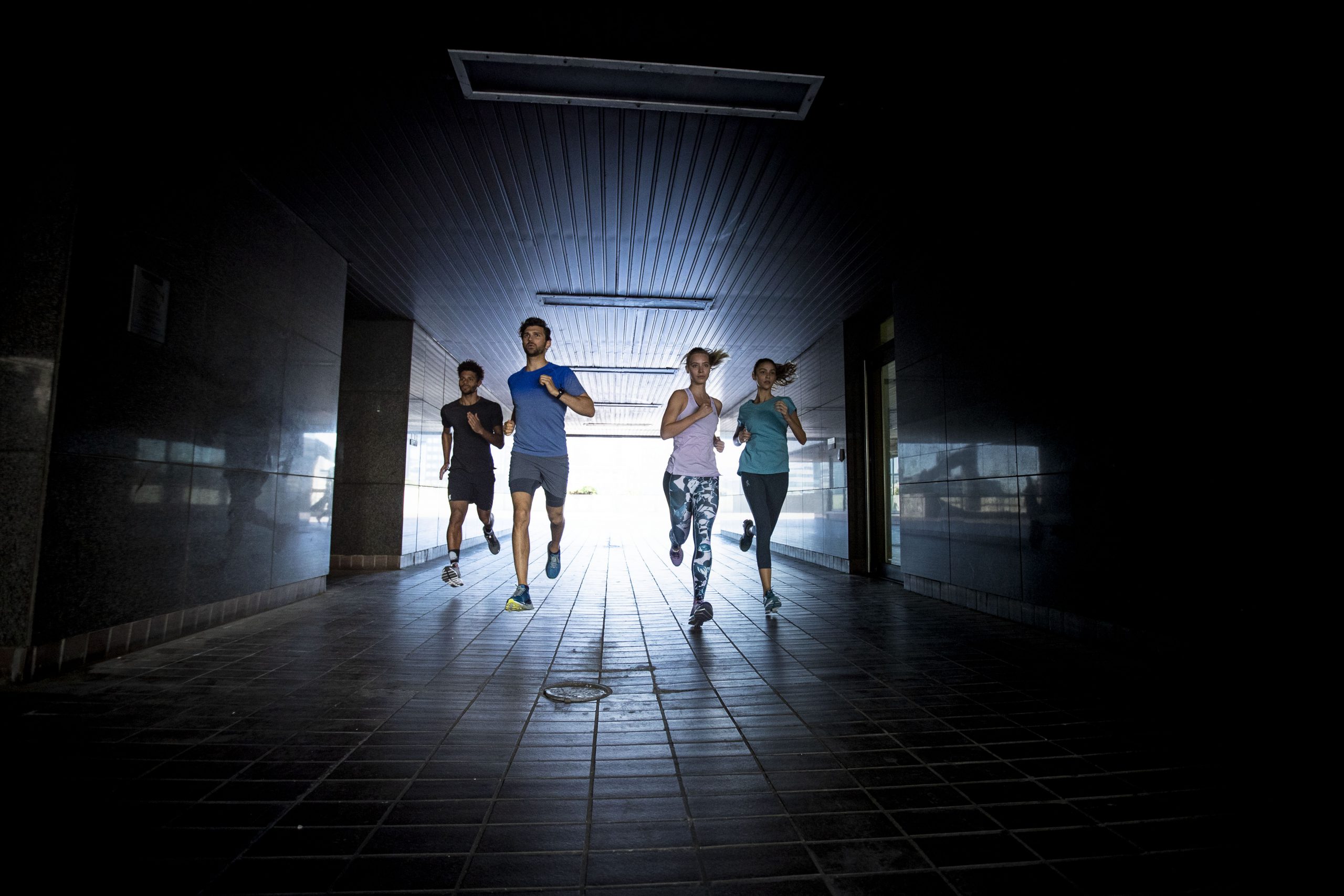Article by BHM
January 23, 2020 at 6:00 am
Brighton Half Marathon 2020 | Race news
Tags: brighton half marathon, injury prevention, Runners Need
How to prevent injuries in the lead up to race day

With the countdown to The Grand Brighton Half Marathon officially underway, it’s important to look after yourself during this intense time, and make sure you don’t sustain any injuries before the big day. We’ve teamed up with our partner Runners Need to bring you expert advice on avoiding injury to make sure you’re in top shape for race day.
Listen to your body
Bear in mind that every runner is different. We all have different injury thresholds, which means that the golden rule when training for the half marathon is to listen to your body. Being honest with yourself about your limits, and not forcing your body past them, will mean more effective training, a minimised risk of injury and, most of all, a happy and successful race.
Before a run: preparation is everything
The importance of warming up before a run cannot be emphasised enough. Warming up is essential for reducing your risk of injury. It loosens up your muscles, gets your heart rate up and primes your body for exercise. Plus, starting with a warm-up jog prevents you from getting too tired on your run and stopping your run early, which can harm your motivation.
Strength training in the gym alongside running is critical to half marathon success, particularly targeting glutes, calves and hamstrings. It helps to prevent injury in these key areas by building up the muscle in your legs, therefore preparing them for endurance running. Building a strong core is also essential for running form, as it stabilises your upper body which improves your posture and speed.
During your run: be methodical
During your training runs is when listening to your body comes into play. Running injuries don’t suddenly appear: there are always warning signs (aches, pains, soreness) which you need to be careful not to ignore. It’s also important to remember that recovery days exist to allow your muscles time to repair, and over-training will only increase your risk of injury, so ensure you have – and stick to! – a training plan which includes enough recovery time.
In fact, a training plan is a cornerstone of effective half marathon training. Plans are entirely individual and depend on the runner’s current fitness level, running goal and time available. You should consult a running specialist to help you establish an attainable goal and develop a plan which will ensure you reach it without hurting yourself.
During your half marathon training, you should gradually increase your mileage to ensure you don’t put too much stress on your body before it’s ready – a sure way to get injured. Varying the pace and length of your runs will allow you to train for both speed and endurance leading up to the half marathon and will make sure you’re not putting too much consistent strain on your body. A great tip is to check out the profile of the course you’ll be running so you can prepare accordingly, such as if the course is particularly hilly. Luckily for you, the Brighton half marathon course is nice and flat!
A tapering period, in which you cut down on training as the half marathon approaches, can dramatically reduce your risk of injury on the day, and prevent problems during your recovery period. Every runner’s tapering period will differ in length and intensity, and the person with whom you develop your training plan will advise you on this. Tapering may seem counterintuitive, and many runners believe it will damage their performance, but your hard training should be done by this time. Tapering is a chance for the changes you’ve made to take effect: the ways in which you grow faster and fitter through training are called ‘training adaptations’, and actually take place during recovery. So, whilst you’re running less in your taper period, your body is still working hard to get you ready for race day.
After a session: don’t underestimate recovery
You must never forget to properly recover after every run. Recovery is as important to half marathon preparation as training is, and a necessary step to prevent injuries. Stretching to cool down after every run is a must, as is using rollers and massage kits to keep your circulation going and rid the body of toxins. Again, ensuring your training plan includes scheduled recovery days after hard or long sessions is key.
Peak performance from the ground up
Running in the right shoes is essential not only for preventing injuries, but for performing at your best and getting the most out of your training. Runners Need offers free gait analysis and shoe fittings with in-store experts, who will help match you with your perfect running shoe. You’ll also find the latest innovations in performance fabrics, high-tech gadgets and nutrition science, as well as advice born from experience to help you smash the race!

